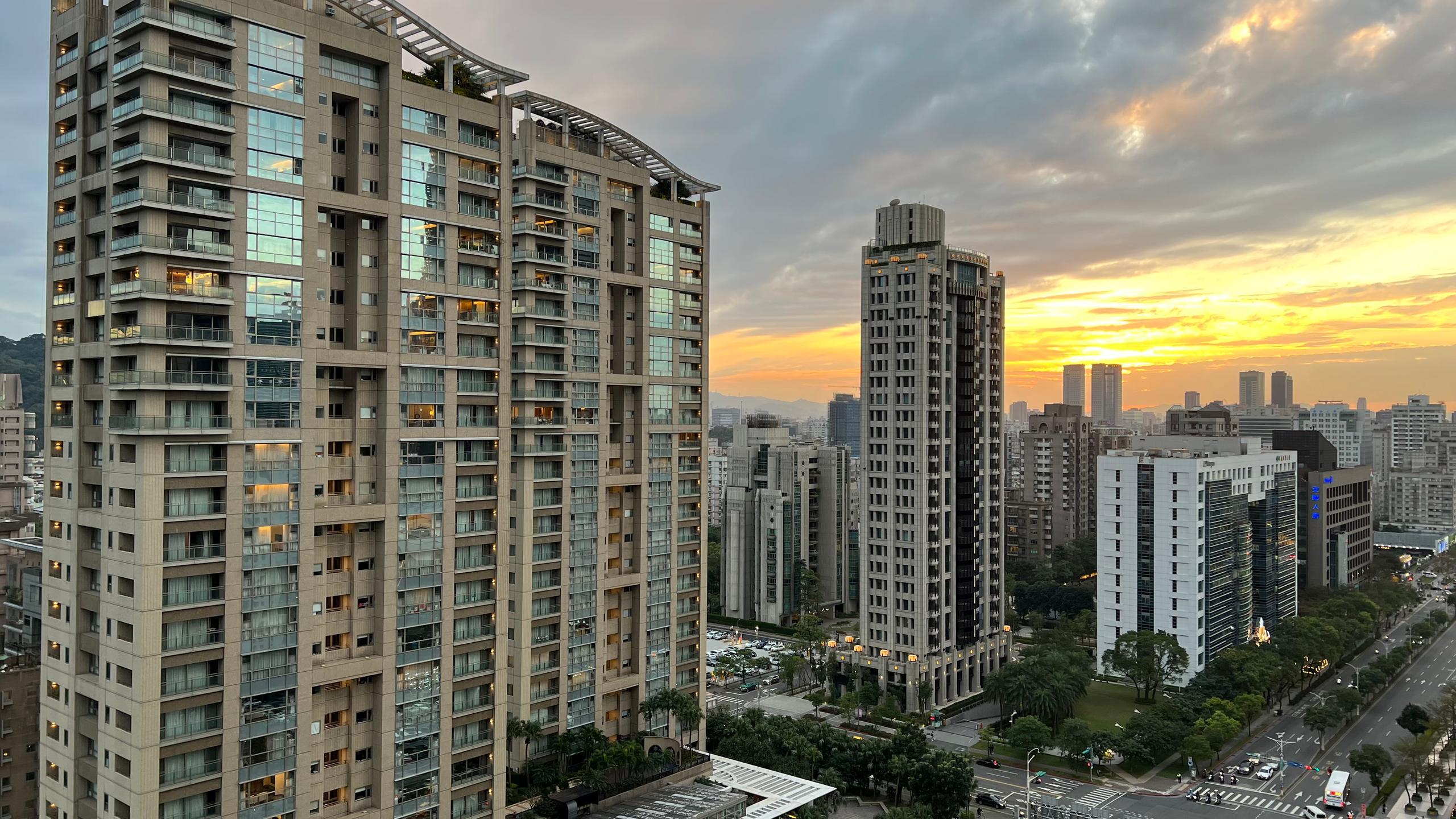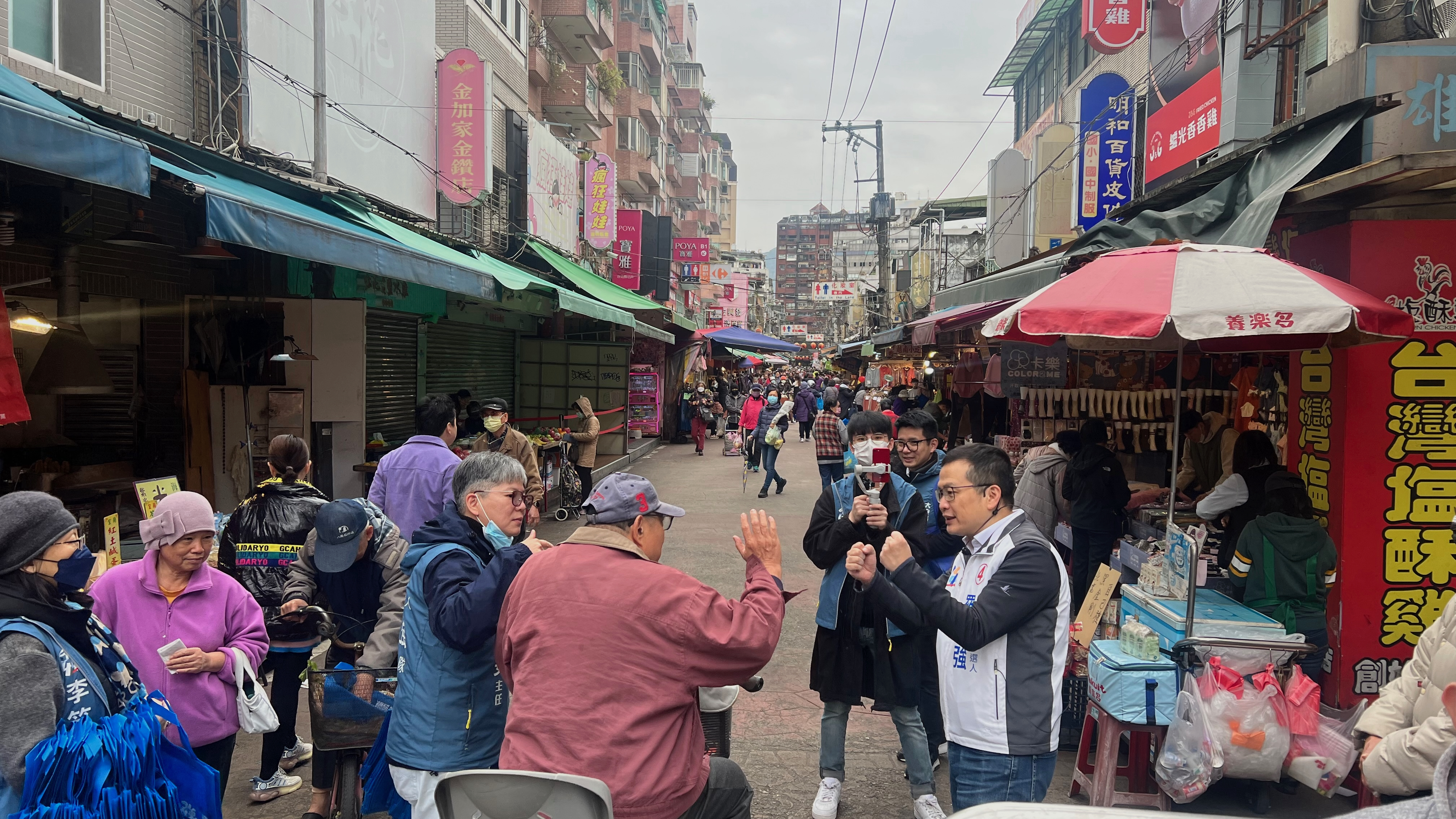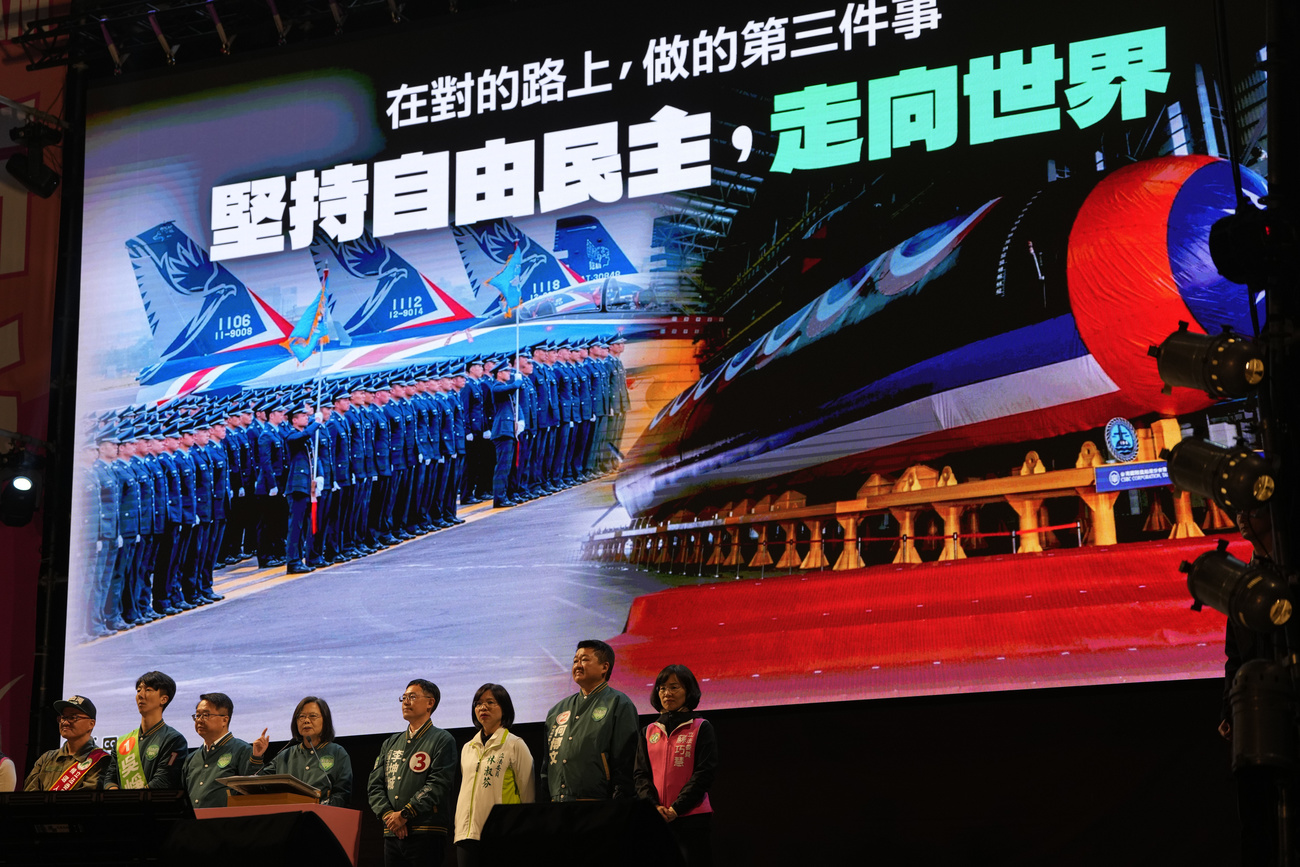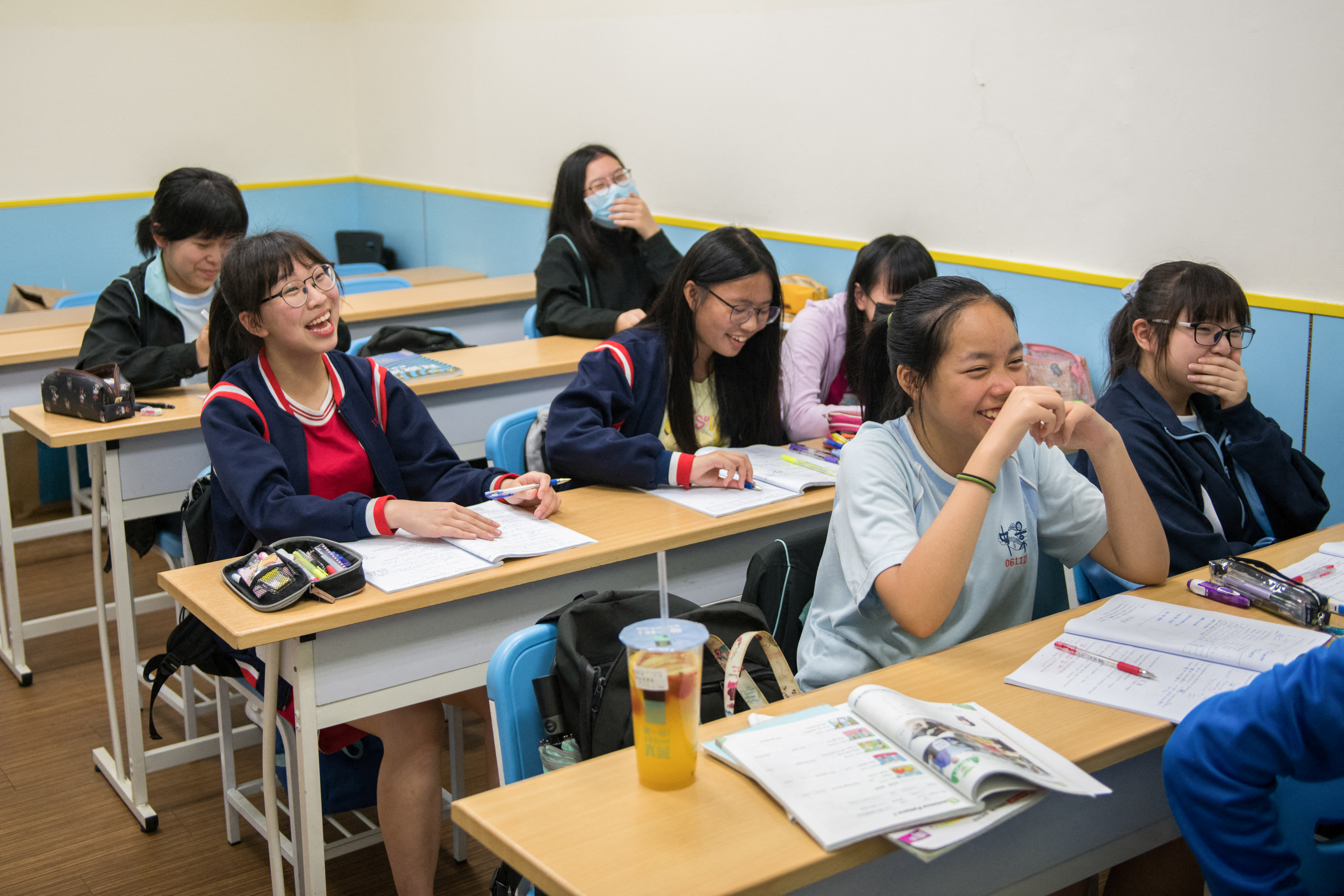

Taiwan: a model democracy
Over the past three decades, Taiwan has blossomed into a model democracy. Its robust school system and election campaigns that adhere to strict transparency rules showcase this transformation – thanks to, or despite, pressure from neighbouring China.
Enter the search term “Taiwan” in Google, and the response is clear: “It is a country in East Asia.” The reality, however, is more complex than what the internet search engine suggests. Taiwan’s situation is tricky. The Swiss foreign ministry labels it as “Taiwan (Chinese Taipei)”. Taipei is the capital of Taiwan, which is home to around 24 million people and boasts one of Asia’s most democratic systems.
Switzerland does not recognise Taiwan as an independent state
Taiwan’s official status is disputed. Since 1949, the People’s Republic of China has claimed sovereignty over the island. Only about a dozen states formally recognise Taiwan, with Guatemala being the most populous among them.
Switzerland does not recognise Taiwan as an independent state, even though the two democracies have a lot in common. Over the past 20 years, Taiwan has introduced popular votes and adopted a direct-democracy system similar to that of Switzerland.

More
How to report on China from outside the country
Despite its contentious international standing, Taiwan has steadily developed its democracy over the last 30 years and become a role model in areas such as political education. Trust in the system is strong: 90% of Taiwanese feel committed to their country’s democracy.
Taiwan is significant for ‘global stability’
Governments wishing to maintain diplomatic relations with China – a geopolitical and economic superpower – cannot recognise Taiwan as an independent state. The significantly larger People’s Republic of China adheres to a one-China policy, just as the United Nations has done for more than 50 years.

More
Explainer: Why Taiwan’s vote commands global attention
Nevertheless, Taiwan is significant on the global stage. Economically it dominates the international market for semiconductors, which are required to produce microchips. But Taiwan also has a “geostrategic location at the centre of the global supply chain maritime trade routes”, says sinologist Simona Grano at the University of Zurich. Military manoeuvres in the seas around Taiwan provoke concerns not just on the island but in the rest of the world. Grano believes that maintaining the status quo on Taiwan is crucial for “global stability”.
From a military dictatorship to a model democracy
In recent decades, Taiwan’s image in the world has been transformed. It’s evolved from a military dictatorship into a model democracy.
“Ideologically, Taiwan is significant as it contradicts China’s claim that Western values and democracy are incompatible with Chinese culture and indigenous values,” explains Grano. During the 1990s, when Taiwan’s democracy was in its infancy, vote-buying was common. But this has changed dramatically with the introduction of strict transparency rules and upper limits on political donations.

More
Transparent political finances: a balancing act in Taiwan and Switzerland
Fight against fake news in an open society
Open societies need reliable information. Democracies at the heart of geopolitics like Taiwan and the United States are particularly vulnerable to disinformation. In response, Taiwan has seen the establishment of numerous professional organisations dedicated to combating this threat. One such entity is the Taiwan Fact Check Centre, where dozens of journalists diligently expose content manipulation and provide well-documented information on these issues.

More
Taiwan’s fight against digital disinformation
Democracies also rely on their citizens being well-informed about political issues. Facing significant external pressure, Taiwan places a strong emphasis on political education. Civic and political education is a compulsory subject across the country. Democracy is even practised in schools. At the Tainan First High School, for example, students actively participate in democratic processes, such as electing electoral committees and voting on matters such as choosing classroom furniture.

More
Learning democracy through games in Taiwanese schools
This explains the profound understanding of politics among Taiwanese students, revealed by a comprehensive international comparative study. Whether or not Taiwan’s complex geopolitical position has favoured this development, the country is now a well-established democracy. The future generations of Taiwanese will be better informed about democracy if the current status quo under “Chinese Taipei” can be maintained.
But where does the term “Chinese Taipei” come from? It was actually coined in Switzerland by the Lausanne-based International Olympic Committee. The name allowed Taiwanese athletes to continue participating in the Olympic Games following the international recognition of the People’s Republic of China.
Edited by Mark Livingston. Adapted from German by Billi Bierling/gw

In compliance with the JTI standards
More: SWI swissinfo.ch certified by the Journalism Trust Initiative
















![The four-metre-long painting "Sonntag der Bergbauern" [Sunday of the Mountain Farmers, 1923-24/26] had to be removed by a crane from the German Chancellery in Berlin for the exhibition in Bern.](https://www.swissinfo.ch/content/wp-content/uploads/sites/13/2025/12/01_Pressebild_KirchnerxKirchner.jpg?ver=bb19e376)














